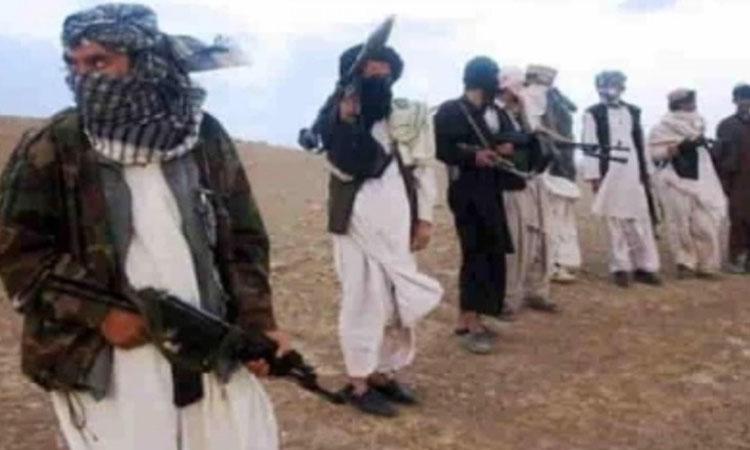After the developments in Afghanistan following the take over of the government by the Taliban, there has been a considerable impact on various Islamic radical groups in the South Asian region with some of them seeing the return of Taliban as a reflection of victory of a staunch Islamic narrative.
Bangladesh has always been associated with the developments in Afghanistan, as radical groups in Bangladesh have over the years fought alongside the Mujahideen during the period of Soviet invasion of Afghanistan and along the Taliban against the US and western forces.
The Taliban take over in Afghanistan witnessed an initial euphoria among the radical groups in Bangladesh with leaders of several such entities announcing that the development was a sign of victory for the Islamic Ummah.
Also Read | 'US, S.Korea working to restart dialogue with Pyongyang'
Some even went to the extent of stating that now was the time for Bangladesh to be a wholly Islamic nation and influence the region on similar lines. However, the strong foundation of democracy and secularism that has evolved in Bangladesh over the last few years under the Awami League government has successfully staved any such rhetoric from influencing the people and society at large.
Having been restricted in their activities, some such radical entities have launched an aggressive mass media campaign to gain popularity by criticising the government and various institutions they consider as damaging the interests of these radical entities.
Two of the fringe Islamic radical outfits present and active in Bangladesh, the Hizb-ut-Tahrir (HuT) and the Tayebia Bangladesh Mission (TBM), have been at the forefront of persistent mass media campaigns through press releases, leaflets, posters and social media posts, targeting the Awami League government, Bangladeshi Prime Minister Sheikh Hasina, and her government's relations with India and its policies.
Also Read | PIA cites security reasons to suspend Kabul operations
These outfits have been pushing the rhetoric that the present government in Bangladesh is "autocratic and oppressive", and they have been critical of any cooperation between Bangladesh and India or Bangladesh and the West.
They have been demanding the need to change the Awami League government and ensure that an Islamic party takes over so that norms of the Sharia are followed in Bangladesh. These entities have been projecting the so called "positive aspects" of an Islamic society and they tend to praise the Taliban government, which they feel should be emulated in Bangladesh too.
Some of these outfits recently tried to target a cross section of so called 'radical oriented' officials in the government and the armed forces to change their approach and attitude towards the government from within and create a pro-Islamic narrative in their ways of functioning.
They have targeted government institutions such as the Army and the security forces, claiming them to be beholden to the government and hence functioning under an "India-backed" government. Some of the leaflets/publicity materials are specifically addressed to the Bangladesh Army, inciting it to topple the present government to establish "Khilafah Rashidah".
They have also made repeated calls to the armed forces personnel to stop protecting the "traitors who had back stabbed the Army in Pilkhana (referring to the BDR mutiny in 2009) after conspiring with India" and to "save the Muslim Ummah and themselves" by removing this regime.
The HuT also criticised the recently-held 'Bangladesh-Britain 4th Strategic Dialogue' as symbolic of 'master-slave' relation and berated Sheikh Hasina for allowing such "insulting activities" critical of Bangladesh.
The Covid-19 pandemic has also come in handy for these groups to target Sheikh Hasina for being "responsible" for all the deaths and mismanagement and for "looting millions" through corruption in the health sector.
They alleged that Sheikh Hasina was using the pandemic as a political tool to stay in power by suppressing dissent. The other issues used by these groups are Rohingya refugees, support for secularism and recognition to Israel, etc.
Bangladesh saw a surge in Islamic nationalism in the Covid-19 period as more radical organisations took to the internet to propagate their cause. Radical media has been well-exploited by these entities to project their views.
According to a survey conducted by the Bangladesh Police, 82 per cent of the extremists were inspired by radical media propaganda and around 80 per cent of them use Facebook Messenger, WeChat, Threema and other end-to-end encrypted platforms.
Online radicalisation has thus been a challenge in Bangladesh as these entities are able to suitably push their narrative across the entire population group, including those in the government.
The Tayebia Bangladesh Mission (TBM) called Sheikh Hasina a puppet of India, alleging that "India and Mujib held Bangladesh hostage" and asserted that people of the country will never tolerate India again. These bodies have referred to the mega projects started by the present government as "mega corruption" initiatives and alleged that Prime Minister Sheikh Hasina has ushered in an era of corruption and blamed the MPs as petty businessmen exploiting political power to rob the country.
While Bangladeshis are generally conscious of the negative branding that the country can get with any prominence to the radical groups, at the same time, given the strong pro-radical sentiments prevalent there, it often becomes difficult for the government to act against those groups in a hard-hitting and aggressive manner.
At the same time, their persistent campaign and instigation against the Awami League government and India and propagation of the ideology of Islamic fundamentalism and militancy can have significant impact on some sections of Bangladesh populace. The desperation in them is evident as they indulge in spreading leaflets/messages through different means to reach the people.
The government will have to prevent any space to these entities, otherwise they can change the nation into a rabid Islamic fundamentalist hot bed.


















